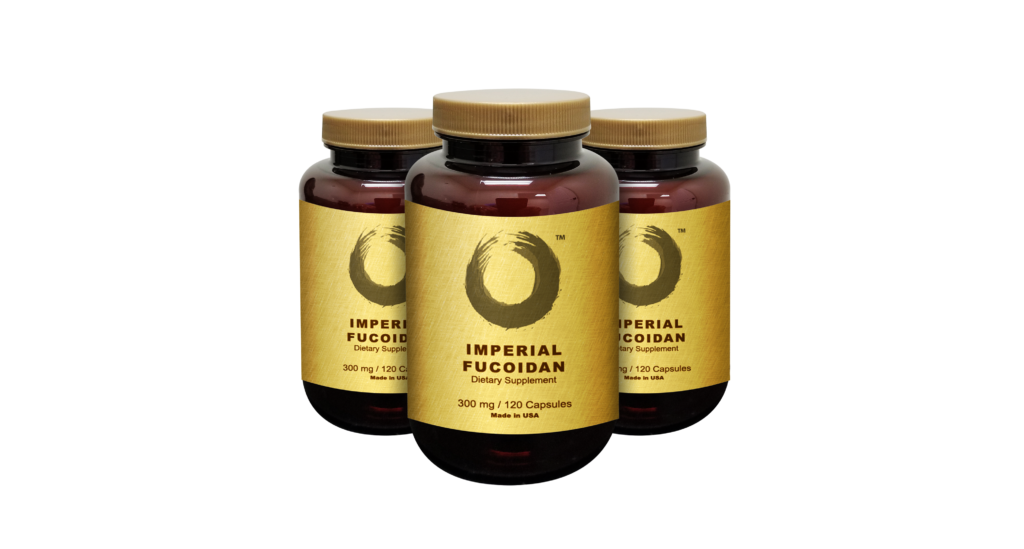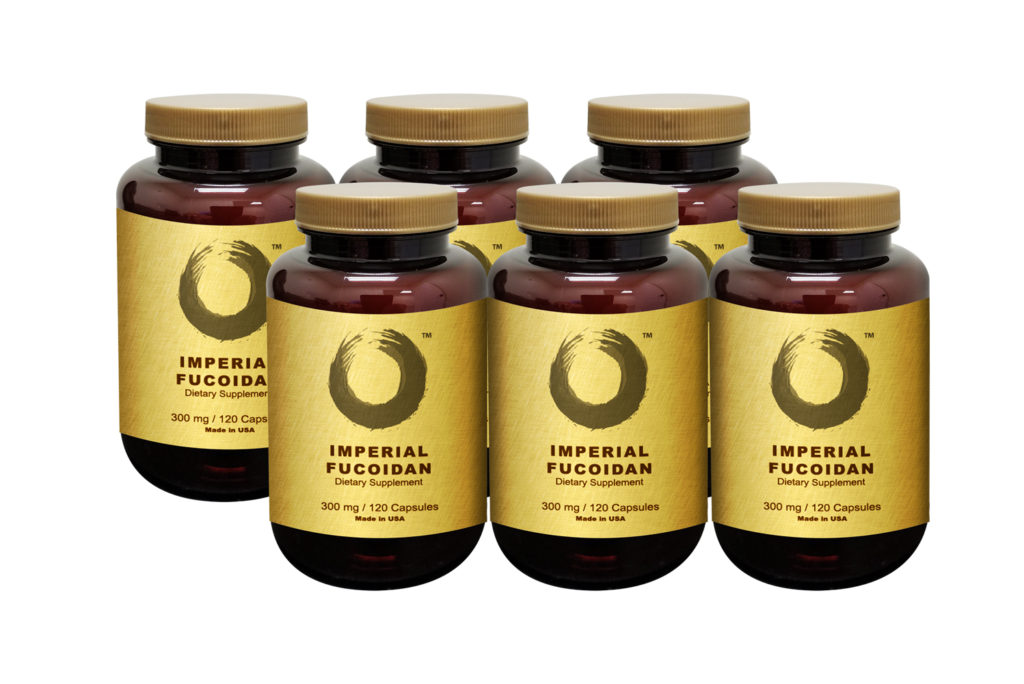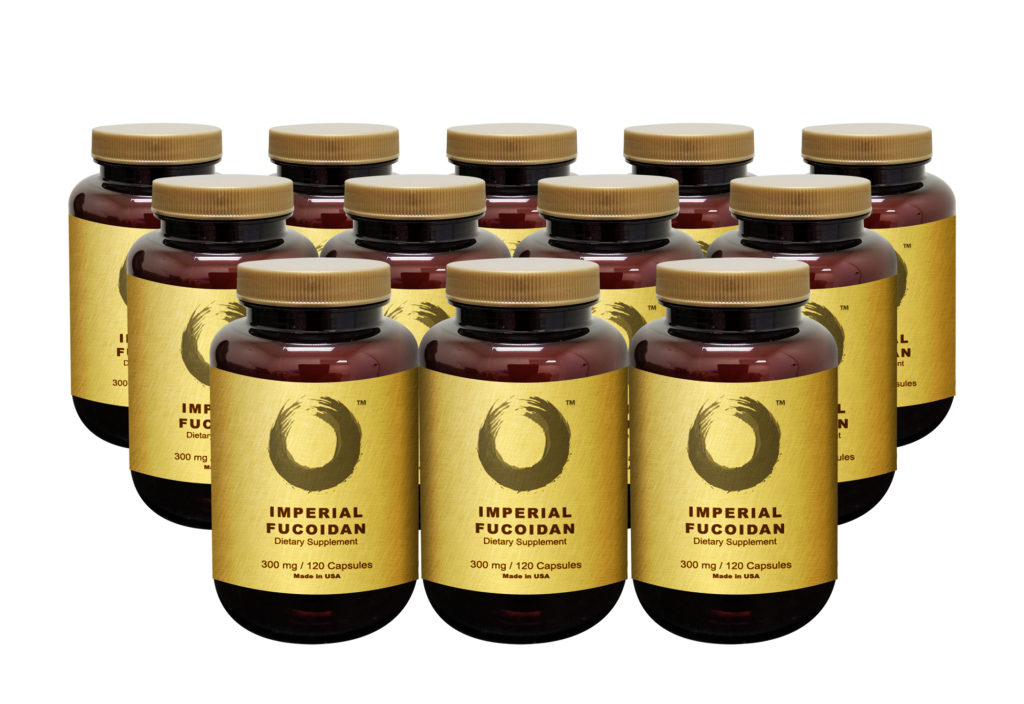Health Benefits of Imperial Fucoidan
What is Fucoidan?
Fucoidan (pronounced foo-koy-den) is a complex polysaccharide found in many species of brown seaweeds such as Kelp, Alaria, and Bladderwrack. Fucoidan has been researched extensively for its health benefits. Many studies at renowned organizations around the world (such as PubMed, Oxford Journals) have found that fucoidan may have the ability to promote quality of life. The substance found in the cell walls of these brown seaweed species is used medicinally for a wide variety of health purposes such as protecting the body from major diseases, helping the body to recover from minor illnesses, treating high blood pressure, infections, and/or allergies.

History of Fucoidan
The seaweeds that Fucoidan comes from have been in common diet since the 17th century. For centuries, the people of Okinawa, Japan, have enjoyed brown seaweed as part of their daily diet. It is no wonder Okinawa is classified as the blue zone, where people have the healthiest lives and the highest life expectancies in the world.
Health Benefits:
Fucoidans research has progressed to show exceptional health characteristics, including:
- Anti-cancer
- The global search for a cancer cure is now heading towards natural treatments, both as the main pathway or in supportive care. Fucoidans protect against cancer by targeting cells that are involved in programmed cell death, which works by killing the cancer cells without triggering inflammation (Atashrazm et al., 2015).
- The remarkable effects of fucoidan were recently demonstrated in Japan (Takahashi et al., 2017), where researchers supplemented the diets of 20 cancer patients with fucoidan for 4 weeks. After just 2 weeks, it was found that the main pro-inflammatory markers associated with cancer had been significantly decreased. These findings indicate a promising approach for fucoidans as supportive care for cancer patients undergoing chemotherapy, or other treatments. By working alongside traditional medications, including chemotherapy, fucoidan makes the treatment more effective at lower doses, which can reduce the toxic side effects.
- Anti-coagulant
- Heparin is a highly sulphated polysaccharide, found in mammalian tissues, that has been used as an anticoagulant drug for more than 50 years. As fucoidan shares the same sulphated polysaccharide structure as Heparin, it has been used as a natural alternative for blood thinning (Giraux et al., 1998).


- Anti-inflammatory
- Fucoidans can inhibit pro-inflammatory markers in the body. Researchers in Korea found that fucoidan may offer therapeutic potential for treatment of neurodegenerative diseases such as Alzheimer’s, Parkinson’s and Huntington’s diseases (Park et al., 2011).
- Immune-enhancing
- Research conducted on elderly Japanese men and women found that a supplement of fucoidan improved their immune response to a seasonal flu vaccine (Negishi et al., 2013). This could have a huge benefit on the health of the elderly.
(The material on this website sole purpose is for information purposes only. It is not intended to replace medical advice or be a treatment for any medical condition. Consult a health professional if you have any concerns about your health.)

